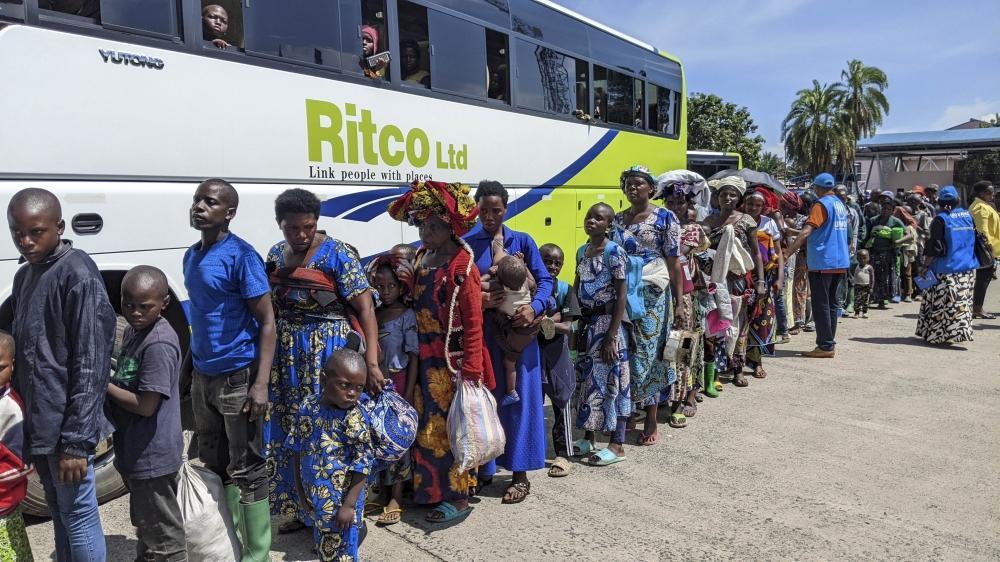Shyaka Kanuma
Africa-Press – Rwanda. It has now been a month since the foreign ministers of Rwanda and the Democratic Republic of Congo (DRC) met in Washington, D.C., alongside their U.S. counterpart, Senator Marco Rubio.
There, they signed the Declaration of Principles, a document that was expected to mark the beginning of tangible efforts toward resolving the DR Congo’s protracted conflicts and paving the way for lasting peace.
The burden of action was clearly on the government of President Félix Tshisekedi in Kinshasa. After all, it is Congolese territory that remains engulfed in relentless conflict. The immediate priority was to begin dismantling armed groups responsible for terrorizing civilians—starting with the genocidal FDLR militia, the criminal Wazalendo outfit, and others.
The Congolese authorities were also expected to act decisively against hate speech and rein in the virulent anti-Tutsi rhetoric and anti-Rwanda propaganda routinely spewed by their own top officials.
To demonstrate commitment to the principles they had just endorsed, Kinshasa needed to be seen implementing these measures and more—signaling that it was finally turning a corner.
Instead, the Tshisekedi regime has done nothing that could reasonably be interpreted as a step toward peace. At best, it has lapsed into a sullen silence while quietly maintaining its alliance with the FDLR.
A recent case in point: the regime’s protest against the repatriation of hundreds of Rwandan nationals—refugees who had been held captive by the FDLR for decades.
One would expect any reasonable government to welcome such a development.
Instead, Kinshasa lashed out with a communication dated May 24, 2024, claiming—falsely—that “ordinary refugees were being forcibly repatriated.”
That narrative was lifted directly from FDLR propaganda. The so-called “refugees” had long yearned to return to their homeland but were detained under threat of death.
The FDLR used them as recruitment fodder—men, women, and even children—until the M23 movement recently routed the militia in battles that culminated in the defeat of Tshisekedi’s broader coalition of forces earlier this year.
Rather than seizing this moment to dismantle what remains of the FDLR—a group that exists solely to destabilize Rwanda—Tshisekedi’s administration has instead parroted the militia’s propaganda, revealing its true allegiances.
The regime’s continued silence on other atrocities, such as hate speech targeting Rwandophone communities or the crimes committed by Burundian troops against Congolese Tutsi in areas like Uvira, reinforces the perception that nothing has changed in Kinshasa.
Time and again, regional and international mediators—from Angola to Qatar, and now the U.S.—have attempted to steer Tshisekedi toward peace. But his regime remains obstinately belligerent.
It is, frankly, not hard to understand why. Félix Tshisekedi has built his presidency on conflict.
This column has made that argument before, and many objective analysts have echoed it. War is Tshisekedi’s sole instrument for political survival.
Without it, he would be forced to explain to Congolese citizens why poverty is more entrenched than ever; why civil servants go unpaid; why the country’s infrastructure lies in ruins.
Most dangerously for him, attention would shift to the wholesale plundering of Congo’s vast resources by his inner circle—largely made up of fellow Luba tribesmen and loyalists imported from the Matonge district in Brussels.
Early in his presidency, Tshisekedi realised that war could serve as a potent distraction from his regime’s incompetence and corruption. And Rwanda—more specifically, the Congolese Tutsi population in the east—became the most convenient scapegoat.
He stoked hate, encouraged ethnic cleansing, and let his regime figures—from Patrick Muyaya to Constant Mutamba and Justin Bitakwira—spew anti-Rwanda rhetoric that dominates both mainstream and social media.
“Rwanda is to blame!” they chant—and magically, the failures of the Congolese government are forgotten.
How, then, can anyone compel Tshisekedi and his loyalists to embrace peace?
A profoundly difficult question, indeed.
Source: The New Times
For More News And Analysis About Rwanda Follow Africa-Press






